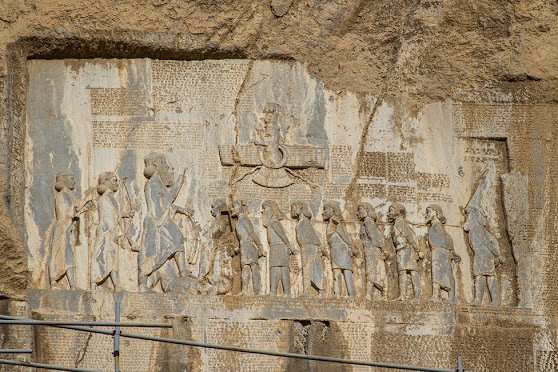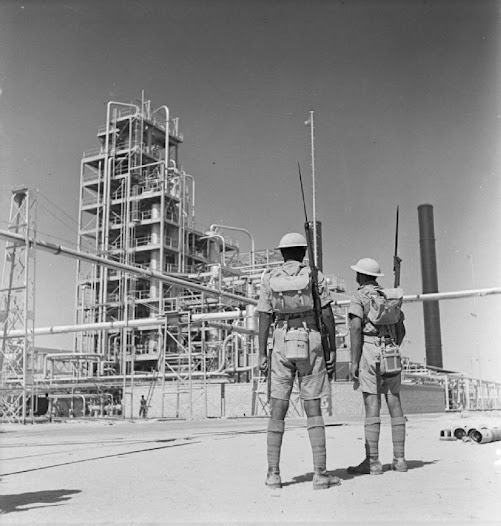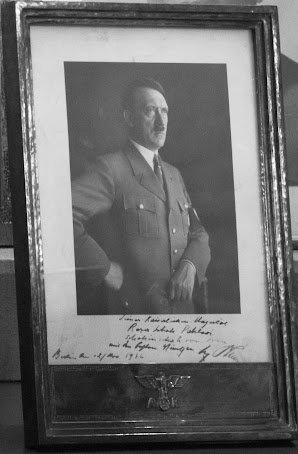Iran: Religion as a shield
"Religious fanatics"
Iran has an incredibly long and rich history, it's arguably one of the world's oldest continuous civilizations and summarising all of that would take forever. Unfortunately, you wouldn't get that impression from modern media coverage which mostly just focuses on highlighting that Iran is a country run by religious fanatics who're trying to develop nuclear weapons to use against the United States. This view is unfortunately just a caricature that undermines any proper explanation for why Iran is the way it is today.
Throughout this region's long history, Iran has been influenced by the wide variety of cultures they've interacted with in the past, such as Greeks and Arabs. But in spite of this, Persians have always retained a very strong connection to their cultural identity. For clarification here, "Iran" is the name of the country today, whereas Persian is the name of the dominant ethnic group in Iran, which has historically been quite a multi-ethnic society.
If you were to go to some Middle Eastern countries today and ask people what they identify themselves as, it wouldn't be uncommon for the immediate response to be "Muslim". In some of these places, people identify themselves primarily by their religion and everything else (ethnicity, nationality etc...) comes after that. In Iran, this is sometimes the case too as Islam is now long engrained into Persian culture, but Persians also hold their own identity as Persians really important too, sometimes even more so than their religious beliefs.
You can clearly see that despite its reputation for being a strict Islamic country, modern day Iran is still filled with monuments that show constant veneration and pride for the country's older pre-Islamic past.
Iran before WW2:
This is about as far back as it makes sense to go when explaining the context of modern day Iran without writing a 10,000 page book.
Iran was never formally colonised by any European empires. In fact, Iran is one of the few modern day countries in the world that has never been under European colonial control. However, this slight technicality wasn't enough to protect a land which has one of the largest known oil reserves in the world. A British company called the Anglo-Persian Oil company was set up at the beginning of the 20th century, and it is this company that was the first to ever extract oil from Iran. The Anglo-Persian Oil company was effectively nationalised by the British government and it was they who extracted the lion's share of oil from Iran.
In other words, a British company, owned almost entirely by the British government had monopolised Iran's oil extraction. Obviously many Iranians were aware of how unfair this deal was, but despite much protest through the years, neither the oil company nor the British government did much to make the deal better for Iranians. There's so much more detail to go into about how the British empire exploited Iran during this period but I think this example encapsulates the point. This was the first of many events that fuelled the Iranian people's mistrust of foreign powers, especially from the West.
Invasion during WW2:
When World War II broke out, Iran was being ruled by a Shah (Iranian king) called Reza Shah whom the British had begun to mistrust. Officially he declared neutrality in the war, but the British suspected he was being influenced by Nazi diplomats. If true this would be incredibly problematic since they were certainly trying to take control over Iranian oil, a crucial resource during the war.
The British sent Reza Shah a letter demanding that he expel every German national present in Iran since they might be working towards Nazi interests. Reza Shah refused. They sent him this demand twice and he refused it both times. After this the British and the Soviet Union invaded Iran and forced Reza Shah out of power and replaced him with his son, Mohammed Reza, who was far more enthusiastic and willing to cooperate with British (and later American) interests.
Would His Highness kindly abdicate in favour of his son, the heir to the throne? We have a high opinion of him and will ensure his position. But His Highness should not think there is any other solution.
It's funny how the tone of this letter almost sounds like a polite request at first but then they basically remind him that he has no choice since they've just dominated him with their superior military which conquered the country in just about 5 days.
Fun fact though, this paranoia over the Shah's loyalty may actually have been warranted. Before 1935, the country had been referred to as Persia, however from 1935 onwards the name was officially changed to Iran, meaning "Land of the Aryans". It's believed that the name was changed as a request by a Nazi ambassador present in Iran to highlight how Nazi racial policy considered Persians to be pure blooded Aryan people and amongst the superior races in their hierarchy. But, the evidence that this is actually the reason for the name change looks a bit sketchy so I can't say how accurate this story actually is. But even still, it is true that since his rise to power Hitler was making efforts to establish good relations with Iran and pull it away from Britain. He particularly relied on propaganda that glorified Iran's past and highlighted how it had become a victim of foreign powers.
A signed photograph Hitler sent as a gift to the Shah. The text says "His imperial Majesty - Reza Shah Pahlavi - Shahanshah of Iran - With the Best Wishes - Berlin 12 March 1936" Followed by Hitler's own signature.
Regardless of whether or not it can be justified, this invasion and forced removal of the Shah in favour of his son is just another episode of meddling in Iranian affairs which fuelled the Iranian people's mistrust of foreign Western powers.
Mohammed Reza Shah:
If you've ever learnt about the Iranian Revolution, there's a good chance you've probably heard of this guy. He was the new Shah brought into power after the British and Soviets invaded during WW2. He's famous for being the final Shah when he was overthrown during the Iranian Revolution in 1979.
Mohammed Reza Shah's reign is complicated. Under his rule, Iran's economy experienced a huge boom and the country became one of the fastest developing nations in the entire world. He also brought in a large programme of social reforms, many of which would be considered very progressive by today's standards. But, some of these social changes were very problematic because they went contrary to the hugely important cultural identity of Iranians that I mentioned earlier. Although, many of these were also issues inherited from his father's reign.
In a way the social programmes Mohammed Reza Shah and his father introduced could be described as their attempts to forcibly turn Iran into a Western country, or at least to emulate one. The problem is that Iran wasn't and isn't a Western country. For example, under Reza Shah's reign, wearing a headscarf became illegal and police were ordered to forcibly remove the veil from any women they found wearing one (not a great idea in a country where the majority of the population are Muslims). Reza Shah also ordered that all men must wear European style clothing and hats, with traditional Iranian or Islamic clothing being highly discouraged. Under Mohammed Reza some of these draconian rules were slightly relaxed, however discrimination against anyone appearing too traditional or Islamic still existed. The Shahs wanted a "modern Iran" which to them meant shunning their cultural norms and trying to appear more Western.
In addition to the fact that Mohammed Reza Shah was aggressively westernising a country that didn't want to be westernised, it doesn't help that Britain and America kept him in power even when the Iranian people wanted him out. One infamous example known as Operation Ajax was only recently acknowledged by the US government.
Operation Ajax:
Operation Ajax was the first of many operations the CIA conducted during the 20th century to overthrow democratically elected leaders and replace them with dictators who aligned with American interests. In 1953, the Iranian people elected Mohammed Mosaddegh as their prime minister. Mosaddegh was really popular amongst the Iranian people and he made the decision to nationalise the Anglo-Persian Oil Company and remove it from British control into the hands of the Iranian government. This really infuriated the British government, especially because Mosaddegh's appointment had removed most of the Shah's power.
"Our long years of negotiations with foreign countries... have yielded no results thus far. With the oil revenues, we could meet our entire budget and combat poverty, disease, and backwardness among our people. Another important consideration is that by the elimination of the power of the British company, we would also eliminate corruption and intrigue, by means of which the internal affairs of our country have been influenced. Once this tutelage has ceased, Iran will have achieved its economic and political independence."
- Speech given by Mosaddegh in 1951
The CIA and MI6 led an aggressive propaganda war calling Mosaddegh a power hungry dictator. The New York times wrote an article calling Mosaddegh an even worse dictator than Hitler or Stalin. All this because he stood in contrast to their preferred leader, Mohammed Reza Shah. The CIA eventually sent funding towards Iranian gangs and militia to organise a coup against Mosaddegh in spite of his popularity in Iran and the fact that he had been elected democratically. They then restored the Shah back to power for another 26 years.
The legacy of this operation can't be understated, and like all the other examples of foreign meddling before it, Iranians were left deeply resentful towards Britain and America for undermining the will of the Iranian people once again in favour of protecting their own economic interests.
Islam as a Shield:
In 1979 there was a revolution in Iran that toppled the Shah and brought into power the Islamic regime that's still currently controlling Iran today.
I think it would be an exaggeration to describe Iranian society before the revolution as secular, at least when compared to European standards, however it certainly wasn't the kind of theocracy that it is today. Ayatollah Khomeini, the supreme leader of the revolution, was a deeply religious spiritual leader who came to prominence due to the frustrations Iranian people felt from over a century of foreign powers meddling in their affairs. What I've written here only covers a fraction of the examples demonstrating that those frustrations were well validated.
Under Ayatollah Khomeini, Islam presented itself as a shield against foreign powers. Religion is powerful because it's one of the ultimate ways to unite people against a common enemy even if not everyone strictly adheres to it in their personal life. I can't tell you how often I hear people in this country say things like:
"All the Iranians I've met are so chill and drink alcohol and stuff, I don't understand why their government has to be so overly religious"
or
"Have you seen those old pictures of Iranian women walking around wearing mini skirts, now suddenly their government's become crazy religious and forced them to cover up."
Modern coverage of Iran in the West is shockingly bad. The country often gets lumped under the umbrella of "Backwards, overly religious countries that need to westernise and catch up with the rest of the modern world." It's a shame to see a country with such a rich heritage reduced to this. It's a self-defeating attitude too, since these overly paternalistic ideas of westernisation are one of the primary reasons why Iran has fallen behind this shield of Islam in the first place.




I think media is unfair en mass. Living in a country at conflict for over 10 years has only emphasized this notion and pushed me further from all hypes and news because I cannot trust neither national nor international media channels to know what the hell is happening around me.
ReplyDeleteSome of the greatest countries and cultures are ever in struggle against "catching up with the rest of the modern world", and this is sheer absurd since the entire "modern world" is pushing for diversification and inclusion!